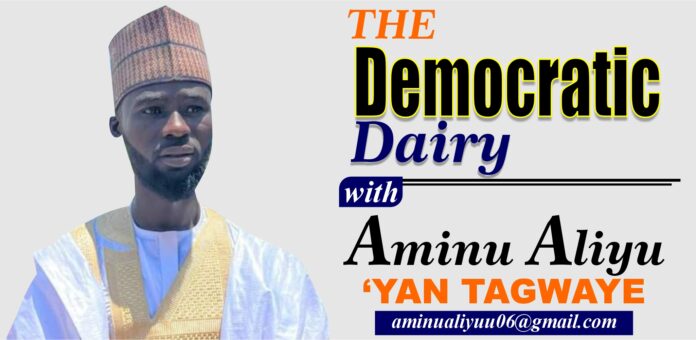
By Aminu Aliyu Yantagwaye
A Passport Reminder Of Northern Region’s Educational Heritage
One of the unique challenges of a Nigerian in Nigeria or Africa and the world ubiquitously, is identifying as a Northern Nigerian. These particular difficulties are more pronounced outside the 19 states that comprise Nigeria’s Northern Region, and many times at tertiary institutions, high-profile intellectuals cosmos, among foreign dignitaries in round-table discussions, and local and international circles – a question is always posed to you, how is it that you speak or behave in a particular way?
This always has a way of getting to me in a tone that means a person from the 19 Northern States is not capable of being a vibrant cosmopolitan or an equal universatarian. Could it be due to our distinctive historical and cultural factors, where the North has always been defined as a predominantly Muslim state and its people had less western education during colonial periods, despite their early contact with other civilizations?
Five days ago, my network informed me about a post that had gone viral on X social media platform made by a Non-Governmental Organization called “Africa Facts Zone” which is said to be “the Africa’s biggest facts brand and the world’s most up-to-date facts platform” owned by Isima Odeh.
Very surprisingly, this network is categorized as the biggest in a continent of approximately 1.525 billion people accounting for 18.3% of the world’s population (Worldometer 2024). Yet with only 1.2M on X Social Platform, Africa Facts Zone claimed that Northern Nigerian states have a long way to go in promoting education as the region occupies the bottom of the chart of literacy rate in Nigeria and without taking considering, the Northern region’s educational heritage extends far beyond Western-type education, which is merely one chapter in its long-standing tradition of knowledge acquisition.
Literacy and education are indeed symbiotic forces, forming the bedrock upon which human development, personal empowerment, and community transformation are built. But which among Nigeria’s regions and states had early contact with education, literacy and other civilizations? When Literacy is put to judgement and measurement, these facts finding houses, ignore the comparative, and historical differences that existed between and among these states as if they are suffering from intellectual leprosy that excruciates them from lifting the truth.
The 19 Northern States of Nigeria, before any other region, witnessed significant advancements in literacy and education, fueled by the region’s early contact with the Trans-Saharan Trade and Islamic Influence from the 8th to 15th centuries. Important learning centers and historical documents across Nigeria, noted that this period saw an influx of Islamic scholars, establishing Kano and Borno as pivotal hubs for Islamic education.
The renowned Hausa City-states – Zaria, Katsina, Kano, and the Kanem-Borno Empire – thrived from the 10th to 19th century, fostering vibrant trade and cultural exchange with East Africa and the Middle East. Notably, the 12th century marked the emergence of Ajami, a modified Arabic script adapted for the Hausa language, which complemented Arabic literacy. This bilingual approach enabled the use of both Arabic and Ajami scripts side by side, facilitating widespread literacy and educational growth.
In fact, Ajami’s enduring legacy is evident in its continued use on Nigerian currency, serving as a testament to the country’s earliest forms of literacy and education. Moreso, I want draw the attention of the “Africa Facts Zone” to yet another fascinating part of the government good wisdom in its rigid decision to preserve Ajami because its value is a testament to the country’s rich educational history and cultural legacy acting as inspiration to future generations.
It appears that Africa Facts Zone is not the biggest and world most up to date facts finding brand in Africa. No, it cannot be with this concocted publication about literacy rate that has no umbilical connection to our historical foundation as a country. On top of this fallacy, the disparities in the Western education and economic opportunities across Nigerian states is a common knowledge, so much that you need not to physically and geographically explore these states to know Rivers state majority of their youths engage in oil bunkering and other organized crimes.
In Abia state, available and verifiable statistics suggest that the number of girls that go to school far outnumber boys’ enrollment in school, with majority of men opting for business over education. How come Abia came number 5? As for the last and second to the last, (Yobe and Katsina), I am not surprised at their rating given the prevailing security situation there. Beyond literacy rates, poverty prevalence across states reveals a troubling correlation. From richest to poorest, the differences are startlingly minimal, underscoring the symbiotic relationship between illiteracy and poverty – two inextricably linked menaces.
Africa Facts Zone, without filters and Photoshop this is a passport reminder of Northern region’s educational heritage.





































